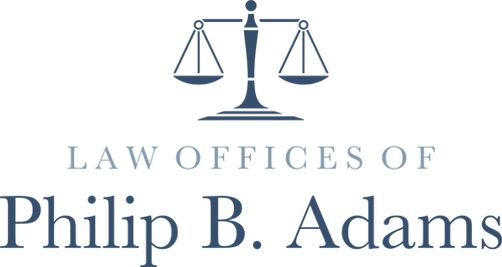|
Has a police officer ever asked to search your vehicle? Or perhaps that officer has requested permission to step inside your house and have a look around? Maybe an officer has asked if you are willing to come down to the police station and talk with him or her. There is a reason for that. It is a tactic, and they want you to agree.
But there is something you should know in case you are asked such questions in the future. Thanks to the Fourth (4th) Amendment, you can say NO, and you or your property shouldn’t be searched. The 4th Amendment, among other things, states that “the right of the people to be secure in their persons, houses, papers, and effects, against unreasonable searches and seizures, shall not be violated….” Thus, pursuant to the 4th Amendment, it has been held that a government actor may not search you, your house, your vehicle, papers, or effects without either a warrant, probable cause, or exigent circumstances. However, your 4th Amendment right against unreasonable searches and seizures can be waived or given up by you, and you can consent to a search of your person, premises, or things. The consent must be freely given and not the product of coercion. If you voluntarily consent to a search, a government official can search whatever you agree to and look for evidence of a crime without meeting the above-stated requirements. Additionally, the government official can potentially seize what they find and use it against you in a court of law. Consent searches are perfectly legal, and so is the evidence obtained from the searches. That is how a consensual search can lead to a criminal case. Your giving your permission to search may be the first step on a road that could lead to prison. In order to prevent that from happening, it is essential to remember the 4th Amendment right against unreasonable searches and seizures. If you have an interaction with a police officer or any other government official and they ask you for permission to search you or your things, you are not required to consent, and it is a good idea not to do so even if you have nothing to hide. If you believe that you or a loved one were unlawfully searched in Louisiana and evidence was illegally seized, you should speak with a Louisiana criminal defense attorney at the Law Offices of Philip B. Adams immediately. If you currently have a pending misdemeanor or felony criminal case due to an unlawful search, any evidence obtained from the illegal search may be subject to exclusion and not be used against you. Still, the issue has to be brought properly before the court and litigated. The Law Offices of Philip B. Adams are experienced Louisiana criminal defense lawyers and have litigated 4th Amendment issues vigorously for years. We have represented and fought for Louisianians’ rights throughout the state regarding unlawfully searched individuals, vehicles, homes, and more. If you want to learn more about our firm, you can go to our website or call us at 318-230-7199 to set up a consultation. Comments are closed.
|
Law Offices of Philip B. Adams
- Home
- About Us
-
Practice Areas
-
Criminal Defense
>
- Violent Crimes >
- Sex Crimes >
- Property Crimes (Home Invasion, Burglary, Looting, Trespassing)
- Accounting, Fraud, and Forgery Crimes
- Weapons and Firearms crimes
- DWI/DUI and other traffic violations
- Cruelty to Animals crimes
- White collar crimes
- Appeals
- Post-Conviction Relief
- Expungements
- Protective orders
- Juvenile delinquency charges
- Personal Injury >
-
Criminal Defense
>
- Blog
- Recent Cases
- Media
- Contact Us
(318) 230-7199
Law Offices of Philip B. Adams, LLC
400 Travis Street, Suite 1109
Shreveport, LA 71101
Law Offices of Philip B. Adams, LLC
400 Travis Street, Suite 1109
Shreveport, LA 71101
© 2019-2020 Law Offices of Philip B. Adams, LLC | All Rights Reserved
DISCLAIMER:
Material presented on the Law Offices of Philip B. Adams (hereinafter “the Firm”) website is intended for informational purposes only. It is not intended as professional advice and should not be construed as such. The Firm is not engaged in rendering legal or other professional services by posting said material.
No Attorney-Client Relationship is created by your use of this website. Neither your receipt of information from this website nor your use of this website to contact the Firm or one of its lawyers creates an attorney-client relationship between you and the Firm.
No Confidentiality. You may not use this website to provide confidential information about a legal matter that you have to the Firm. Your use of this website does not make you a client of the firm or even a prospective client of the Firm. If you have confidential information that you would like to give to any lawyer at the Firm, please communicate with one of the Firm’s lawyers in person or by telephone–not by filling in any form on this website or by sending an unsolicited email to the Firm or any of its lawyers.
Material presented on the Law Offices of Philip B. Adams (hereinafter “the Firm”) website is intended for informational purposes only. It is not intended as professional advice and should not be construed as such. The Firm is not engaged in rendering legal or other professional services by posting said material.
No Attorney-Client Relationship is created by your use of this website. Neither your receipt of information from this website nor your use of this website to contact the Firm or one of its lawyers creates an attorney-client relationship between you and the Firm.
No Confidentiality. You may not use this website to provide confidential information about a legal matter that you have to the Firm. Your use of this website does not make you a client of the firm or even a prospective client of the Firm. If you have confidential information that you would like to give to any lawyer at the Firm, please communicate with one of the Firm’s lawyers in person or by telephone–not by filling in any form on this website or by sending an unsolicited email to the Firm or any of its lawyers.
Website by Hemingway West

 RSS Feed
RSS Feed
